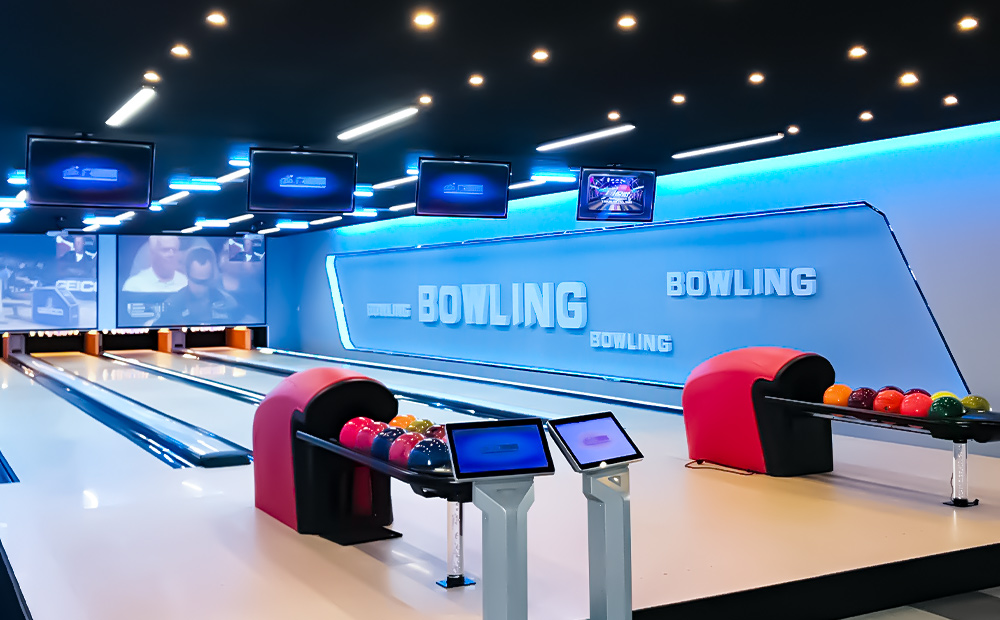Unleashing the Power of Flying Bowling Strings for Competitive Bowling Tournaments
Discover Home Bowling Alley Costs | Flying
How Much to Build a Bowling Alley in Bulgaria? | Flying
Duckpin Bowling Machine Costs – Affordable Quality by Flying
How Much to Build a Bowling Alley in Portugal? | Flying
Price
Cost to setup a 8 lane bowling business?
This includes bowling lanes, bowling balls, pins, scoring systems, ball return systems, shoes, and other necessary equipment. Purchasing or leasing high-quality equipment is essential for a successful operation.
The total cost can vary greatly depending on factors such as location, size, quality, and additional amenities (such as a restaurant or arcade). On average, setting up an 8-lane bowling business can cost anywhere from several hundred thousand to over a million dollars. It's essential to conduct thorough research and create a detailed business plan to accurately estimate the specific costs of your venture.
Consulting with Flying Bowling experts can provide valuable insights into potential expenses.
How much does it cost to build a 2 lane home bowling alley?
Building a 2-lane bowling alley in your home can be a fun and luxurious addition, but it comes with a significant cost. Here's a breakdown of what to expect:
Price range: Expect a ballpark figure of $120,000 to $195,000 [US dollars] for two lanes of traditional ten-pin bowling. This includes lane equipment, installation, and basic functionality for a home setting.
Variations: This cost can be highly influenced by your desired features and customizations. Here are some factors that can push the price higher:
Upgraded equipment: Automatic scoring systems, lane lighting systems, or high-performance lane surfaces will all add to the cost.
Construction considerations: The cost of preparing the space in your home might vary depending on the existing structures, plumbing, and electrical work needed.
Bowling Equipment
Where to find bowling equipment?
You can search for Guangzhou Flying Animation Technology Co., Ltd. on Alibaba International Station and Google, and you can see different types of high-quality bowling equipment on our website. All bowling equipment-related information can be found on the website. If you have any questions, you can contact us at anytime.
Who buys used bowling equipment?
Usually, many of our Indian customers buy second-hand equipment because the price is relatively low. But in the end, they learned that Flying's prices were extremely competitive and the equipment was brand new and of very high quality. So finally, they chose to cooperate with Flying to purchase bowling equipment.
How much to put a bowling lane in your house?
Building a bowling alley in your house may seem very expensive. But at Flying, you can get top-quality bowling equipment from us at very affordable prices. You can have the fun of bowling at home without requiring a lot of money or effort.

Flying Ultra Standard Bowling String Pinsetter

Flying Smart Duckpin Bowling
Flying Smart Duckpin Bowling (FSDB) innovative design, standard 9.2-meter short lane, can be shortened in length, compact layout suitable for small spaces. The game rules are simple but challenging, attracting players of different ages to actively participate.
Suitable for social entertainment venues such as bars, billiard halls, and game centers, it not only enhances interactivity, but also increases the popularity and consumption frequency of the venue. The fun and competitive nature of FSDB will make it a new focus of social activities.

Brand New String Pinsetter Mini Bowling Equipment Small Ball And Pin
Flying Cute Mini Bowling (FCMB) is a mini bowling experience designed for children and families. The lane length is fixed at 12 meters, equipped with lightweight balls without finger holes (only 1.25kg) and small pins, specially designed for children and family fun.
It can not only help children feel the fun of bowling, but also stimulate their interest and competitive consciousness. Suitable for children's playgrounds, theme parks and parent-child centers, it is the best choice for places focusing on the children's market.

Indoor Medium Duckpin Bowling Lane Equipment For Bowling Alley
Flying Social Medium Bowling (FSMB) is tailored for small venues, with flexible lane lengths (customizable from 9.6 meters to 18 meters), a small ball design suitable for players of all ages, and light pins that are easier to knock down, increasing participation and fun.
Whether it is a gathering of friends or a casual social, FSMB can easily create a relaxed and pleasant atmosphere. Its efficient space-utilization design is particularly suitable for cafes, bars and community entertainment venues, allowing people to fall in love with bowling in a relaxed interaction.
Contact Flying
Start your custom bowling alley project
If you contact us now for more details, we can provide you with a custom bowling alley service. Our service team will get back to you within 24 hours normally!
© 2024 Flying BOWLING. Designed by gooeyun


